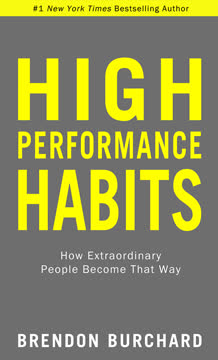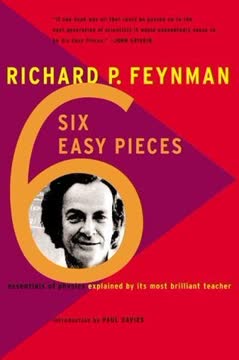重点摘要
1. 财富通过杠杆和特定知识创造
通过出租时间你不会变得富有。你必须拥有股权——企业的一部分——才能获得财务自由。
杠杆是关键。 在现代世界,财富是通过杠杆创造的——即放大你的努力和影响力的能力。这可以有三种形式:劳动力(他人为你工作)、资本(资金放大你的决策)和无复制边际成本的产品(代码、媒体、书籍)。今天最强大的杠杆是无需许可的,如编程或创作内容。
特定知识很重要。 要创造真正的价值和财富,你需要特定的知识——无法轻易培训或复制的专业知识。这通常来自追求你真正的兴趣和激情,而不是追随潮流。这是你独特擅长的事情与世界重视的事情的交集。
- 特定知识的例子:
- 在某个小众领域的深厚技术专长
- 跨学科研究的独特见解
- 稀有技能组合(例如,技术+沟通)
- 发展特定知识的方法:
- 追求真正的好奇心和兴趣
- 通过学徒制和实际经验学习
- 以新颖的方式结合多种学科
2. 通过发展稀有且有价值的技能建立个人垄断
成为世界上最擅长你所做事情的人。不断重新定义你的工作,直到这成为现实。
创造独特的价值主张。 要真正成功并创造财富,你需要发展个人垄断——一种使你不可替代的技能和知识组合。这并不意味着在全球范围内绝对最好,而是在你的特定领域或目标受众中最好。
不断进化。 关键是不断完善和重新定义你的专业领域,直到你开辟出一个独特的位置。这可能涉及结合多种技能或在新环境中应用你的知识。目标是达到一个没有真正竞争的地步,因为没有人能提供与你完全相同的东西。
- 建立个人垄断的策略:
- 确定你的技能、兴趣和市场需求的交集
- 发展互补技能以创造独特的组合
- 保持在你领域的前沿
- 将你的专业知识应用于新兴或未被满足的市场
- 个人垄断的例子:
- 既懂用户体验设计又懂商业策略的软件开发者
- 具备营养和心理学知识的健身教练
- 专注于特定行业和新兴技术的营销人员
3. 在生活的各个方面优先考虑长期思维和复利
生活中的所有回报,无论是财富、关系还是知识,都来自复利。
以十年为单位思考。 生活中最显著的收益来自复利——不仅在金融方面,还在关系、知识和技能方面。通过在长时间内持续进行小的改进和做出良好的决策,你可以实现指数增长和看似神奇的结果。
耐心是关键。 挑战在于复利需要时间才能显示出显著的结果。在短期内,可能感觉你没有取得进展。这就是为什么许多人未能实现目标——他们放弃得太早。接受长期思维需要纪律和对过程的信任。
- 复利适用的领域:
- 财富:持续投资和再投资
- 关系:建立信任并随着时间的推移加深联系
- 知识:持续学习和连接想法
- 技能:每日练习和逐步改进
- 健康:几十年来持续的良好习惯
- 长期思维策略:
- 设定10年以上的目标并倒推
- 根据长期后果做出决策
- 优先考虑习惯和系统而非短期结果
4. 拥抱责任并承担计算风险以建立信誉
拥抱责任,并以自己的名义承担商业风险。社会将以责任、股权和杠杆回报你。
承担责任。 真正的成功和财富往往属于那些愿意承担责任和风险的人。通过将你的名字和声誉置于风险之中,你表明了信心和承诺。这建立了信任和信誉,从而吸引机会、资源和有才华的合作者。
计算风险。 关键是承担明智的风险——那些你有优势或独特见解的风险。这并不意味着鲁莽,而是愿意对自己和自己的想法下注。潜在的下行风险应该是可控的,而上行可能是改变生活的。
- 拥抱责任的好处:
- 建立强大的个人品牌和声誉
- 吸引高质量的机会和合作伙伴
- 培养韧性和解决问题的能力
- 创造一种责任感和动力
- 明智风险承担的策略:
- 从小开始,逐步增加曝光
- 发展特定知识以获得优势
- 建立财务缓冲以吸收潜在损失
- 从失败中学习并快速迭代
5. 通过正念和接受培养幸福感
幸福是对你所拥有的感到满意。成功来自不满。选择。
幸福是一种技能。 许多人认为幸福来自外部环境,但它在很大程度上是一种可学习的技能。它涉及训练你的心灵去专注于当下、感恩并接受现实。这并不意味着自满,而是在追求目标的同时在当下找到平和和满足。
练习接受。 幸福的一个关键组成部分是学习接受你无法改变的事情。这减少了不必要的痛苦,让你可以将精力集中在你能控制的事情上。这是关于认识到我们大多数的不快乐来自于抵抗现实,而不是现实本身。
- 培养幸福的技巧:
- 每日冥想或正念练习
- 感恩日记
- 定期锻炼和亲近自然
- 培养有意义的关系
- 接受的原则:
- 区分你能控制和不能控制的事情
- 对思想和经历不加评判
- 接受无常和变化
- 专注于内部而非外部的验证
6. 不断学习和适应以在变化的世界中保持相关性
如果你不能想象自己与某人共事一生,就不要与他们共事一天。
终身学习是必需的。 在快速变化的世界中,学习和适应的能力对于长期成功至关重要。这意味着培养对学习的热爱,并培养快速获取新知识的技能。这不仅仅是关于正规教育,而是关于对新想法和观点保持好奇和开放。
建立学习机器。 目标是提高学习效率。这涉及培养良好的阅读习惯、批判性思维能力以及从多种来源综合信息的能力。这也意味着在面对新证据时愿意改变主意。
- 有效学习的策略:
- 在多个学科中广泛而深入地阅读
- 寻求多样化的观点并挑战你的假设
- 通过项目或教授他人应用你所学的知识
- 发展心理模型以组织和应用知识
- 未来保障的重点领域:
- 技术及其对社会的影响
- 科学和数学的基本原理
- 人类心理学和行为
- 系统思维和复杂问题解决
7. 按照你的价值观生活并寻求内在自由
诚实地说话,不带身份。
定义你的价值观。 过上充实的生活需要对你的个人价值观和原则有清晰的认识。这些是指导你决策和行动的指南针。通过将你的生活与价值观对齐,你创造了一种完整性和目标感,从而带来长期的满足感。
寻求内在自由。 真正的自由来自内心——无论外部环境如何,都能保持平和。这涉及放下社会期望,克服自己的自我,并培养控制反应和情绪的能力。
- 澄清价值观的步骤:
- 反思高峰体验和自豪时刻
- 识别生活选择中的反复主题
- 考虑你希望留下的遗产
- 通过现实世界的决策测试潜在的价值观
- 发展内在自由的实践:
- 正念和冥想
- 斯多葛哲学和练习
- 质疑自己的思想和信念
- 培养对结果的超然态度
8. 基于第一性原理和心理模型做出决策
如果你无法决定,答案是否定的。
从第一性原理思考。 不要依赖传统智慧或模仿他人,学习从基本真理出发思考。这涉及将复杂问题分解为核心要素并从那里重建解决方案。它允许更具创新性的思考和更好的决策。
建立心理模型工具包。 心理模型是理解世界运作方式的框架。通过研究和内化来自各个学科(物理学、生物学、心理学、经济学)的模型,你可以从多个角度处理问题并做出更好的决策。
- 关键的第一性原理思维策略:
- 质疑假设并深入挖掘
- 多次问“为什么”以找到根本原因
- 寻求基本法则和已证实的事实
- 必须学习的基本心理模型:
- 机会成本
- 复利
- 概率思维
- 反向思考(倒着思考)
- 系统思维
9. 投资自己并优先考虑身心健康
我生活中的首要任务,高于我的幸福,高于我的家庭,高于我的工作,是我自己的健康。
健康是基础。 没有良好的健康,很难享受或追求生活中的其他事情。优先考虑你的身体和心理健康是你能做的最好的投资之一。这意味着通过饮食、锻炼和睡眠来照顾你的身体,同时通过学习、关系和压力管理来滋养你的心灵。
创造可持续的习惯。 长期健康的关键是发展可持续的习惯,而不是依赖意志力或短期干预。这涉及了解自己的心理,并设计环境以支持健康的选择。
- 健康的关键领域:
- 营养:强调全食物,尽量减少加工食品
- 锻炼:找到你能持续的愉快运动形式
- 睡眠:优先考虑一致的高质量睡眠
- 压力管理:发展冥想或写日记等实践
- 心理刺激:持续学习和挑战自己
- 建立健康习惯的策略:
- 从小开始,逐步建立
- 设计环境以支持良好选择
- 跟踪进度并庆祝小胜利
- 建立志同道合的支持系统
最后更新日期:
FAQ
What's "HOW TO GET RICH" by Naval Ravikant about?
- Overview: "HOW TO GET RICH" by Naval Ravikant is a compilation of Naval's insights on wealth creation and happiness, curated by Eric Jorgenson. It draws from Naval's tweets, podcasts, and interviews.
- Structure: The book is divided into two main parts: Wealth and Happiness, each exploring Naval's philosophies and practical advice on achieving financial success and personal fulfillment.
- Purpose: It aims to provide readers with a comprehensive guide to building wealth and finding happiness, emphasizing the importance of specific knowledge, leverage, and personal accountability.
Why should I read "HOW TO GET RICH" by Naval Ravikant?
- Unique Perspective: Naval Ravikant offers a unique blend of philosophical and practical advice, drawing from his experiences as a successful entrepreneur and investor.
- Timeless Wisdom: The book distills complex ideas into timeless principles that can be applied to various aspects of life, not just wealth creation.
- Free Resource: The book is available for free download, making it accessible to anyone interested in improving their financial and personal well-being.
What are the key takeaways of "HOW TO GET RICH" by Naval Ravikant?
- Wealth Creation: Focus on building specific knowledge, leveraging technology, and owning equity in businesses to achieve financial freedom.
- Happiness: Happiness is a skill that can be learned and cultivated through presence, acceptance, and minimizing desires.
- Long-Term Thinking: Play long-term games with long-term people, and prioritize actions that compound over time for lasting success.
What is Naval Ravikant's approach to building wealth?
- Specific Knowledge: Develop unique skills that cannot be easily taught or replaced, often found at the intersection of your passions and natural talents.
- Leverage: Use technology, capital, and people to multiply your efforts and create scalable income streams.
- Equity Ownership: Own a piece of a business to benefit from its growth and generate passive income, rather than trading time for money.
How does Naval Ravikant define happiness in "HOW TO GET RICH"?
- Default State: Happiness is a default state achieved by removing the sense of something missing in life, leading to internal silence and contentment.
- Absence of Desire: True happiness comes from minimizing desires and accepting the present moment without longing for external changes.
- Peace Over Joy: Naval emphasizes peace as a more sustainable form of happiness, achieved through acceptance and presence.
What are the best quotes from "HOW TO GET RICH" by Naval Ravikant and what do they mean?
- "Productize Yourself": This means leveraging your unique skills and knowledge to create scalable products or services that generate income.
- "Desire is a contract you make with yourself to be unhappy until you get what you want": This highlights the idea that desires often lead to dissatisfaction and that minimizing them can lead to greater happiness.
- "Happiness is a choice you make and a skill you develop": This emphasizes that happiness is not a passive state but an active pursuit that requires effort and practice.
What is the significance of "specific knowledge" in Naval Ravikant's philosophy?
- Unique Skills: Specific knowledge refers to skills that are unique to you and cannot be easily taught or replaced, often developed through personal interests and experiences.
- Competitive Advantage: It provides a competitive edge in the marketplace, as it is difficult for others to replicate or compete with.
- Natural Fit: It aligns with your natural talents and passions, making it feel like play rather than work, which enhances productivity and satisfaction.
How does Naval Ravikant suggest one should approach decision-making?
- Judgment Over Hard Work: Naval emphasizes the importance of good judgment over sheer hard work, as the right decisions can have a compounding effect on success.
- Clear Thinking: He advocates for clear thinking and understanding the long-term consequences of actions, which leads to better decision-making.
- Avoiding Bias: Naval suggests discarding preconceived notions and biases to see reality clearly and make informed decisions.
What role does leverage play in Naval Ravikant's wealth-building strategy?
- Force Multiplier: Leverage acts as a force multiplier, allowing you to achieve more with less effort by utilizing technology, capital, and people.
- Types of Leverage: Naval identifies three types of leverage: labor, capital, and products with no marginal cost of replication, such as code and media.
- Permissionless Leverage: He highlights the importance of permissionless leverage, like coding and media, which do not require others' permission to use and can be highly scalable.
How does Naval Ravikant view the relationship between wealth and happiness?
- Separate Pursuits: While wealth can solve money-related problems, it does not inherently lead to happiness; both must be pursued separately.
- Internal Success: True happiness is internal and not dependent on external circumstances, whereas wealth is an external measure of success.
- Freedom and Peace: Wealth can provide the freedom to pursue peace and happiness, but it is not a guarantee of either.
What is the "long-term game" concept in "HOW TO GET RICH"?
- Compounding Returns: Long-term games focus on actions and relationships that compound over time, leading to exponential growth and success.
- Trust and Integrity: Playing long-term games with long-term people builds trust and integrity, which are essential for sustainable success.
- Patience and Persistence: It requires patience and persistence, as the benefits of long-term games may not be immediately apparent but are significant over time.
How does Naval Ravikant suggest one should handle desires and expectations?
- Minimize Desires: Reducing desires leads to greater contentment and happiness, as desires often create a sense of lack and dissatisfaction.
- Acceptance: Accepting reality as it is, without constantly seeking change, leads to peace and reduces internal conflict.
- Focus on the Present: By focusing on the present moment and letting go of past regrets and future anxieties, one can achieve a more peaceful and fulfilling life.
评论
纳瓦尔·拉维坎特的《如何致富》因其在财富创造方面的实用建议而备受赞誉。读者欣赏拉维坎特对发展专业技能、利用技术和采用长期视角的重视。该书因其简明、可操作的见解和哲学深度而受到称赞。许多人发现它不仅在创业方面具有激励作用,而且适用于更广泛的领域。尽管有些人指出与拉维坎特其他作品有重叠,但大多数人认为这本书因其在财富、关系和生活方面的独特视角而必读。书中的对话风格和发人深省的概念使其对广大读者来说既易于理解又具有深远影响。
Similar Books












